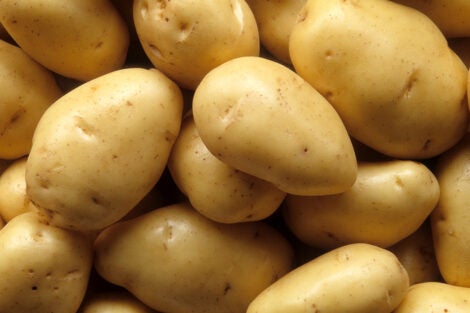June 6, 2024 — In April, as a federal advisory committee worked to update U.S. nutritional guidelines, a question started making headlines: Should potatoes continue to be classified as a vegetable?
Eric Rimm, professor in the Departments of Epidemiology and Nutrition at Harvard T.H. Chan School of Public Health, weighed in on the issue on the May 16 episode of the public radio show Maine Calling. The show focused on the potato’s status and whether it can be part of a healthy diet.
The potato debate popped up in the news following a meeting in which the advisory committee for the federal government’s 2025 Dietary Guidelines for Americans had discussed the impact of hypothetical changes that included reclassifying the potato as a grain. The U.S Department of Agriculture later clarified that this change was not being seriously considered.
On Maine Calling, Rimm noted that how foods are classified by the Dietary Guidelines matters because federally subsidized nutrition programs are required to follow them. In addition, they are an important resource used by educators to teach kids about healthy eating.
The School’s Healthy Eating Plate does not include potatoes in its vegetable recommendations given their negative impact on blood sugar. Researchers at the School and elsewhere have found that diets high in potatoes and similarly rapidly digested, high-carbohydrate foods can contribute to obesity, diabetes, and heart disease.
“It’s not that we want to ostracize individual foods, but that we think about it compared to what?” Rimm said on Maine Calling, noting that most potatoes are eaten in unhealthy forms such as fries. “If you look at other forms of what we call vegetables, I would rather a child eat broccoli.”
He noted that ways to get the most nutritional value when eating potatoes include eating the skin for its fiber content and choosing darker varieties, which include more carotenoids, a type of compound with antioxidant properties.
Listen to the Maine Calling episode: The Great Potato Debate
Photo: iStock/luoman
